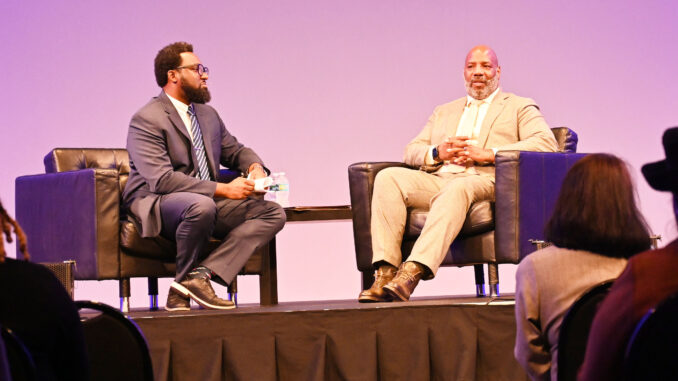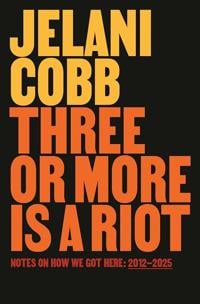
As the 2025 Miami Book Fair begins, the landscape of Black authorship under the Trump Administration is shifting. Broad book bans and censorship initiatives have removed books by Black authors and about Black history from the shelves; executive orders and administrative policies have targeted cultural and educational institutions for allegedly promoting divisive racial ideology; and Black researchers and college educators have faced budget cuts, funding freezes, and a rollback of their DEI protections.
Across the nation, approximately 6% of published authors identified as Black in 2021, a stark underrepresentation of Black voices in a time when Black people make up around 13% of the U.S. population. Although there is a growing demand for diverse stories, the publishing industry remains predominantly white, and Black authors continue to face issues gaining agency representation and finding appropriate literary outlets to publish their work.
“I always wanted to talk for people who couldn’t get into the rooms that I could get into,” said Cobb, “to ask questions that they might not be able to ask.”
Cobb’s book, a collection of essays and articles primarily published in The New Yorker along with their accompanying reflections, explores the characters and crises of a period marked by racial tensions. From discussions of Quentin Tarantino’s 2012 film Django Unchained to Elon Musk’s Twitter, Cobb paints a picture of a chaotic and defining era of American history.
For Cobb, the diagnosis is, and always has been, that there is injustice in the world that we must be cognizant of to truly understand where we are today.
But not every Black author stands at the forefront of that battle. Poet and novelist Honorée Fanonne Jeffers published her nonfiction debut Misbehaving at the Crossroads earlier this year: a gripping narrative of the intersectionality between womanhood and Blackness that takes historical truths and applies them to modern day America.
“I require a lot from my readers,” said Jeffers. “I am fond of saying I do not write Racism 101, and I do not gentle-parent my readers. I assume that my readers are very, very intelligent.”
Honorée writes for readers like herself, curious individuals with open minds who want to know the truth.“My first reader is a Black woman,” said Honorée. “That’s because I am a Black woman.”
For many authors, Black or otherwise, sharing their writing is not only a way to communicate with others but to engage with their past selves. For Cobb, who spends much of Three Or More Is a Riot reflecting on dispatches from the previous 13 years, there were patterns in the social trajectory and his views of them that quickly became apparent to him as an author. For Jeffers, who introduces her book with a meditation on witnessing the Jan. 6 riots through a computer screen, the focus of her writing is on her lived experience as a Black woman in a tumultuous United States.
But novelist and short story writer Edwidge Danticat considers herself not only to be the narrator of her stories but also to be part of their audience, even when it comes to her newest publication, an illustrated children’s book entitled Watch Out for Falling Iguanas.
“When I’m writing, I always imagine that I’m writing for the person I was at a certain stage in my life,” said Danticat. “I started writing picture books when my daughters were born, and I just ended up reading a lot of them… Everything I write is, in part, for me.”
All three authors will be presenting at this year’s Miami Book Fair, held at Miami Dade College’s Wolfson Campus in Downtown Miami. Cobb will be discussing his newest book Three Or More Is a Riot: Notes on How We Got Here: 2012-2025 on Saturday, Nov. 22, at 2 p.m., in conversation with Trymaine Lee; Jeffers will be discussing her newest book Misbehaving at the Crossroads on Saturday, Nov. 22, at 4:30 p.m., in conversation with Imani Perry; and Danticat will participate in several panels, events, and author story times between Nov. 22 and 23.
Find out more about this year’s book fair by visiting www.miamibookfair.com or following @miamibookfair on Instagram, X, and TikTok.
Source:


